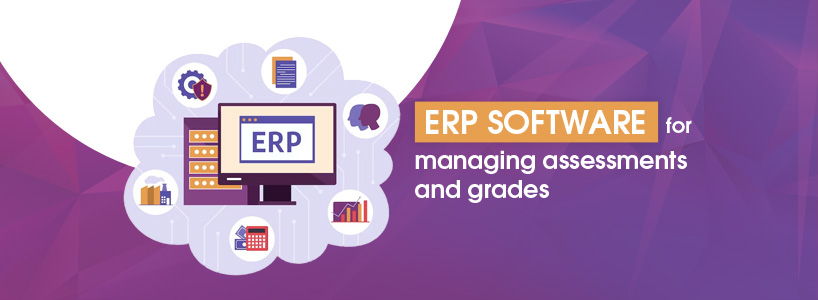The educational landscape is constantly evolving, and educators are continuously seeking innovative ways to improve efficiency and effectiveness. Enter Enterprise Resource Planning (ERP) software, a powerful tool that can revolutionize the way assessments and grades are managed.
What is ERP software?
ERP software acts as a central hub for managing various aspects of an organization, including human resources, finance, and, in the context of education, student information systems (SIS). These SIS modules offer a comprehensive suite of features specifically designed to streamline academic processes, including assessment and grading.
Benefits of using ERP software for assessment and grading:
- Enhanced efficiency: ERP software automates tedious tasks like assessment management software in education, distributing them electronically, and collecting responses. This frees up valuable time for educators to focus on personalized instruction and student support.
- Improved accuracy: Automated grading eliminates the risk of human error and ensures consistency in applying rubrics and criteria.
- Streamlined data analysis: ERP software provides robust data analytics tools, allowing educators to identify trends, monitor student progress, and make data-driven decisions to improve learning outcomes.
- Increased transparency and communication: Students and parents can access grades and assessment feedback in real-time through secure online portals, fostering transparency and facilitating communication.
- Reduced paper waste: By eliminating the need for paper-based assessments and reporting, ERP software contributes to environmentally sustainable practices.
Features to look for in ERP software for assessment and grading:
- Variety of assessment types: The software should support diverse assessment formats, including quizzes, essays, projects, and rubrics.
- Weighting and customization: Allow educators to customize grading schemes, weighting of assessments, and individual feedback tools.
- Feedback management: Provide options for both written and audio-visual feedback delivery.
- Integrations with other tools: The ability to integrate with learning management systems (LMS) and other educational software ensures seamless data transfer and eliminates redundant data entry.
By implementing ERP software for schools and universities to manage assessments and grades can foster a more efficient, data-driven, and student-centered learning environment. As educators focus on what matters most nurturing learning and growth ERP software becomes a valuable tool to empower them in the education revolution.
